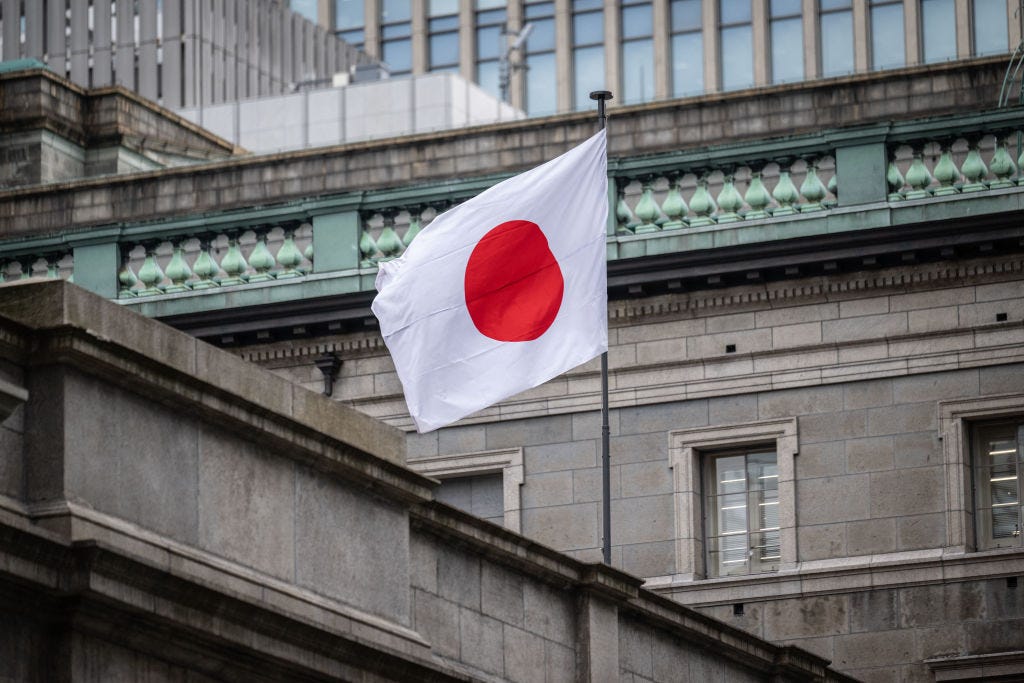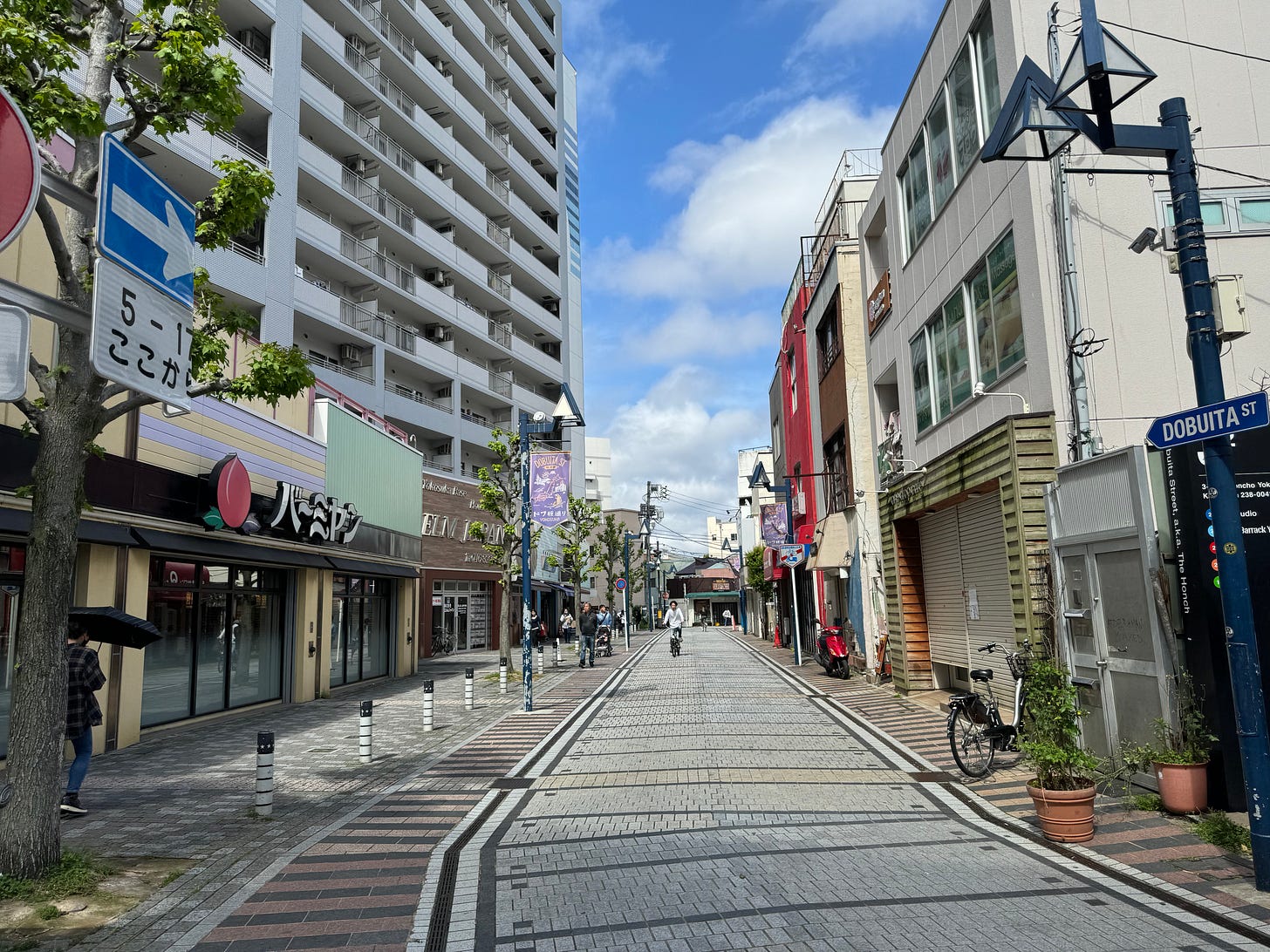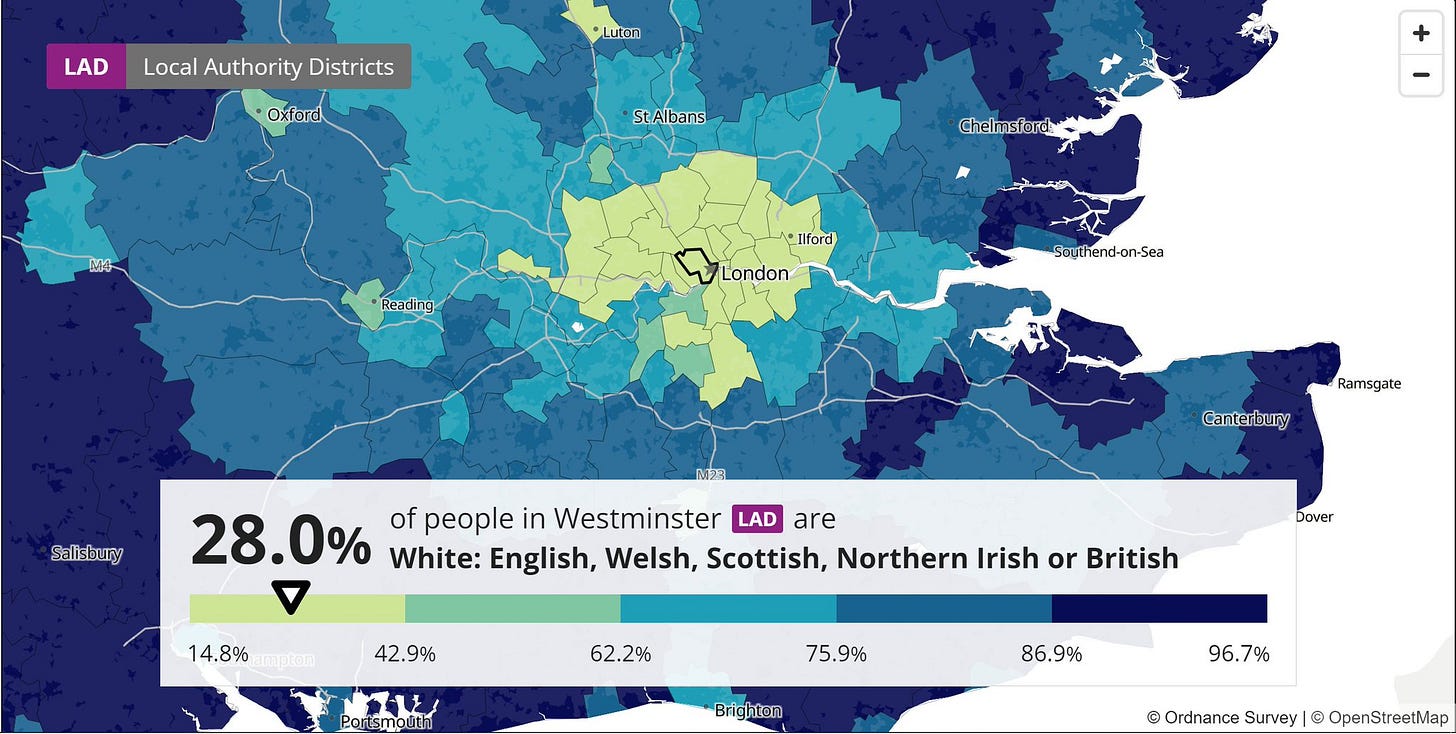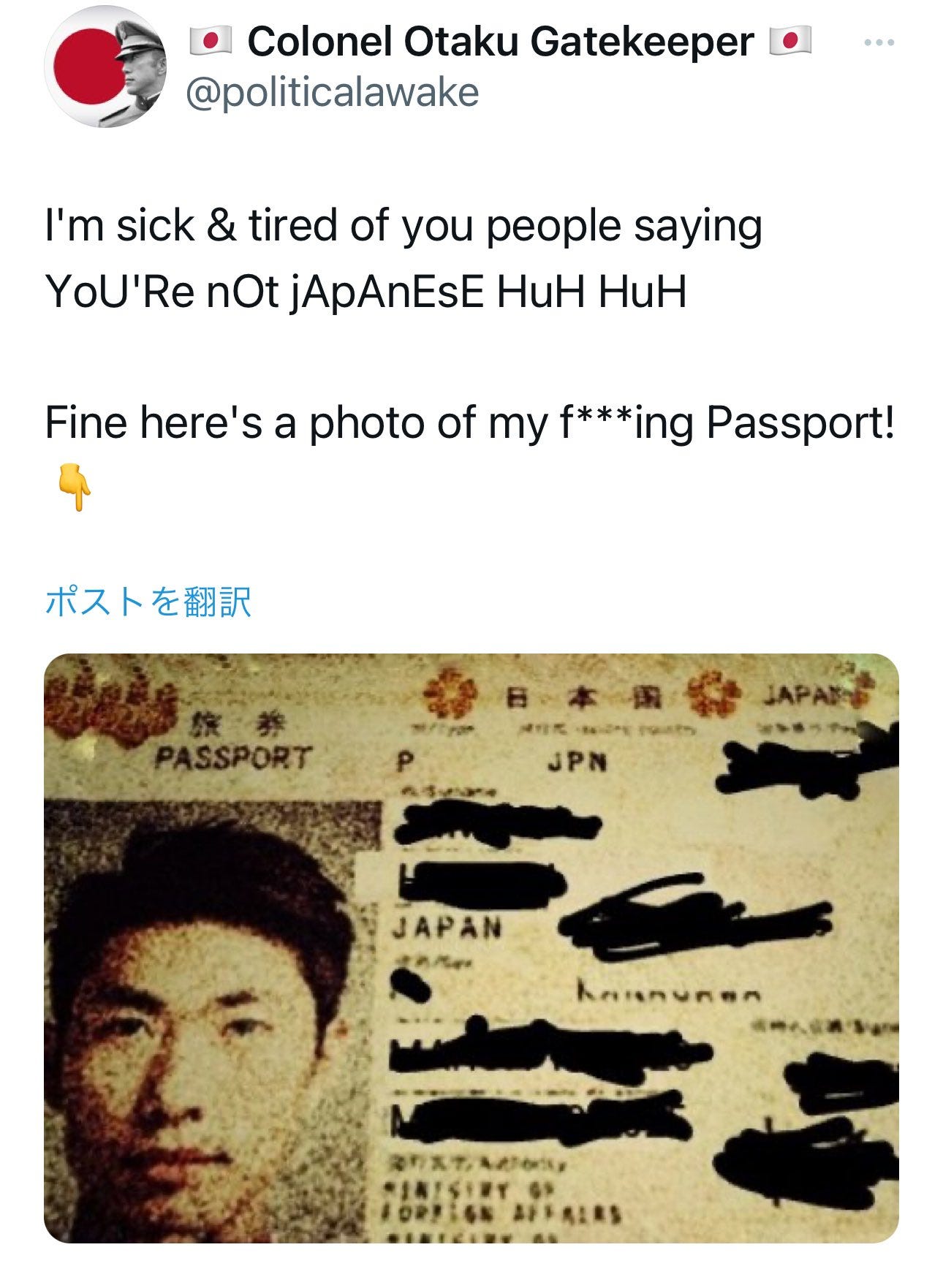Why Japan won’t repeat the West’s mistakes on immigration
Out now in The Spectator and reposted here with some extra thoughts in Bonus Perspectives.

Bonus Perspectives is a recurring column on Foreign Perspectives where I repost links to my latest articles published at other outlets for my subscribers and provide additional commentary. The content provided here is free for all readers, but links to external sites may be paywalled.
I finally got an important article I’ve been planning for months published in The Spectator on the controversial subject of immigration to Japan. For whatever reason, it seems that 2024 is becoming the year when seemingly everyone has a hot take on the Land of the Rising Sun, most of which range from half-true to completely false.
I ventured into some of this when I discussed Ben Shapiro and Jimmy Kimmel’s opinions on Japan, showing where both political pundits got things wrong and where some of their impressions came from grains of truth. I also appeared on my friend Austin Petersen’s show to analyze the Japanese response to Christopher Nolan’s Oppenheimer and Qatar-funded news outlet Al Jazeera’s thinly veiled attempt at creating anti-American discord, while refuting the idea that Japan has never apologized for its war crimes.
Around the same time, the topic of Japan seeing increased immigration in recent years became a heated point of discussion on everyone’s favorite dumpster fire site Twitter (or X as some are now inclined to call it). Notable right-wing accounts made the baseless accusations that Japan was beginning “a programme of open borders” and that it had imported “820,000 Nigerians” into the country, all of which spread like wildfire. As Mark Twain once said, “A lie can travel half way around the world while the truth is putting on its shoes.”
Thus, I was inspired to write a full article debunking these claims. Thankfully, my friend and editor Ross Anderson at The Spectator was willing to champion my idea to the magazine’s higher-ups. It was published on June 17 and is currently for sale in print form across the United States. You can read it here on The Spectator’s website.
On this week’s edition of Bonus Perspectives, I’ll be providing a follow-up to a few points made in the piece. Some content has changed since publication, which is why I held off on publishing this column until everything was updated. My extra thoughts ended up being much longer than I initially planned, so that was another reason for the delay.
Additionally, I wanted to take this opportunity to give an important update on my current freelancing work in relation to this Substack. Don’t worry, the content here isn’t changing. If anything, there will only be more to come for new and existing subscribers alike.
As always, be sure to read the piece itself before continuing on to get the full context of what I’m discussing.
Illegal Entry vs. Illegal Overstayers
After the article went live, a few people pointed out my citation of 6,500 illegal immigrants in Japan in contrast to the over 10.5 million unauthorized immigrants who are in the United States. What I neglected to mention was that there are in fact around 80,000 foreigners in Japan classified as illegal overstayers, as reported by official government statistics.
I informed my editors of this important piece of information and the piece is currently updated via the digital edition, but unfortunately nothing can be done regarding the print version. I issued a correction on Twitter, but I’ll reiterate most of what I said there here. While I intended to illustrate how Japan has far less illegal immigration than Western countries, it’s important to make a distinction between foreigners who enter a country illegally and foreigners already in a country who overstay their visas.
The 6,500 number refers to foreigner workers who illegally entered Japan in 2022, which is a decrease from the previous year. One can likely chalk this up to Japan’s closed borders during the COVID-19 pandemic, but the figures were already on the decline between 2019 and 2020 before the country implemented such measures. On the other hand, the U.S. government reported 2.2 million illegal border crossings in 2022. I don’t think I have to be the one to tell you what a huge difference that is.

The 80,000 number, however, refers to foreigners in Japan who have overstayed their visa. Those figures admittedly have increased from previous years. However, there are two points to note with this. First, that’s still a drop in the bucket compared to the United States’ unauthorized immigration population, which was estimated in 2021 to be around 10.5 million. Second, my piece in The Spectator mentioned an approved 2023 bill which pushed for accelerated deportations of foreigners who have illegally overstayed in Japan.
From this, we can see that Japan is both acknowledging the realities of increased immigration, but also being cautious with how many foreigners it accepts and cracking down on illegal immigration. This was the main theme of my article, but I definitely should have included the statistic of 80,000 illegal visa overstayers since it’s an important number to consider in relation to other countries. While my overall point still stands, this was an oversight on my part and I apologize for not being more thorough.
How Fake News About Japan Spreads
If you’re on Twitter these days (and I really don’t blame you if you are not), chances are you’ve seen a lot of fake news stories about Japan. When one doesn’t speak Japanese or have any context for what’s happening in this country, many accounts both on the left and right post whatever they feel is necessary to push their respective political agenda.

I don’t want to get too deep into the weeds around Twitter drama as it’s probably not something most people who read this Substack are interested in, but for our purposes related to my Spectator piece on immigration, some context is important. As I mentioned earlier, I wrote the article primarily because so many big accounts were sharing fake news stories around the state of foreigners in Japan and I felt compelled to respond with something that would provide more nuance. I’m reluctant to give this account more attention than he deserves, but I feel like I have to because he was one of the major reasons the fake news story of mass immigration taking over Japan went viral. So here’s where it started, with my current place of residence — Kyoto.

An account by the name of “Colonel Otaku Gatekeeper” posted a video of Kyoto’s Gion district in early April 2024 being littered with trash and blaming it on foreigners. However, this ignores some important context. Gion has always been a tourist trap and full of more trash than most other places in Japan. If one searches for “Gion trash” in Japanese, one will find posts from years ago before the pandemic illustrating the same problem.
This of course isn’t an excuse for more littering. I’ve also lamented the state of touristy spots in Kyoto having overflowing trash bins, while I’m no fan of the large crowds. The local authorities are doing their best to accommodate the huge increase of in-bound travelers, and this year’s Gion Matsuri will probably draw in record numbers of people from both domestically and abroad. But what does any of this have to do with immigration? That’s where this story goes off a cliff.
The same day Colonel Otaku Gatekeeper posted that video of Gion, an account with over 320,000 followers called “iamyesyouareno” reposted it and added the caption that Japan has “recently started importing the third world” and that “this neighborhood where they are housed is already turning into a slum.” I cannot state this empathetically enough: That statement is utter bullshit.
If you haven’t realized the obvious yet, Gion is primarily a tourist destination and not a place where immigrants who come to Japan make their home. The increase of trash is due to temporary visitors, not because Japan is “importing the third world.” As I wrote in my Spectator piece, the government is specifically enticing skilled workers from neighboring countries with qualifications in fields like construction and aviation. Those who come here on this program only have a visa valid for up to five years, while those who wish to stay must pass a skills test. Japanese language ability is mandatory, and the number of foreigners from these programs who go on to become permanent residents is very low.
Of course, such facts are nowhere to be found in the tweet posted by iamyesyouareno, an account which frequently racebaits and is known to take things extremely out of context. Yes, his tweet was eventually corrected by Twitter’s Community Notes feature, but only after it was shared by thousands of people and received millions of impressions. I think ol’ Mark Twain would be rolling in his grave. But to make things even worse, it doesn’t end there.
Two days after the iamyesyouareno tweet, the YouTube channel Lotus Eaters posted a video discussing the same subject. The segment, which was taken from a larger podcast covering different topics, made the argument that Japan was accepting mass immigration as if it was some kind of secret conspiracy hidden underneath Westerners’ noses this entire time. Colonel Otaku Gatekeeper’s out of context tweet was cited as evidence, while no one on the panel had ever so much as even visited Japan.
I should note that one of the hosts, Callum Darragh, is a friend of mine. He too was very dissatisfied with how the segment was framed and agreed with me that it should not have made the show. He recently left Lotus Eaters to pursue his own video career, so I don’t blame him for how it turned out. The main host and founder of Lotus Eaters Carl Benjamin, however, has the habit of speaking confidently on international topics he has very little knowledge of. It definitely shows here and no one should take it seriously. But unfortunately, over 110,000 viewers did and Benjamin clearly doesn’t care about the truth.
The bitter irony of it all? “Colonel Otaku Gatekeeper,” the poster of the original Gion tweet, doesn’t even live in Japan. Based on everything I’ve gathered, he hasn’t even stepped foot in this country once. To briefly get into another rabbit hole, his account didn’t begin posting about Japan until a couple of years ago. While in his bio he claims to be a “Japanese Nationalist” who lives in Yokohama, an investigation conducted by me and other Twitter users reached the conclusion that he’s not who he says he is.

The term Live Action Role Playing or LARP refers to a role-playing game where the participants dress up in costumes and act like their characters. Outside of RPGs, LARPing can also refer to an online internet user pretending to be someone else, either for their own amusement or to make a statement. Well, Colonel Otaku Gatekeeper is by every definition a LARPer pretending to be a Japanese person living in Japan. He has created videos with stolen footage and AI voiceovers to make it look like he lives in Yokohama and speaks Japanese (what little he has posted reads like a machine translation), while he has also made poorly photoshopped images of a passport to make it appear that he holds Japanese citizenship.
While this should automatically make it clear that COG doesn’t live here or speak the language, others noted that his posts don’t reflect normal daylight hours in Japan either. His account previously didn’t claim that he lived in Japan, but now he’s currently running a sob story narrative that he’s half-British and half-Japanese. That’s right, this supposed hardcore Japanese nationalist isn’t even of pure Yamamoto blood. I’m sure Yukio Mishima is rolling in his grave right now. That aside, him being based in the U.K. would account for none of his posts matching up with Japan’s timezone. Of course, COG realized his error and had to make a pathetic story to cover himself.
Not willing to be caught in a lie, COG then told his followers that he works at a FamilyMart convenience store in the evenings and that he tweets during his night shifts. I knew this was utter nonsense for two reasons. First, simply searching for “Yokohama FamilyMart” in Japanese on Google revealed the same image COG posted within the first results. All he did was apply a dark filter to make it look like he took the photo. Second, Japanese employees at convenience stores are never on their phones when working. I’ve been to many FamilyMarts at night and everyone present is using those hours to stock shelves, take inventory, and clean the stores. You would get in serious trouble if you were constantly tweeting as much as COG does every day while on the clock.
There are plenty of other instances of it being immediately clear that COG doesn’t live in Japan or know much about this country apart from what he read off Google, but I think you get the point. Normally I wouldn’t care about a random Twitter account LARPing as a Japanese person, but as we’ve seen from my article on immigration to Japan, there are enough big accounts who take him seriously to engage with his content.

And this is why I’ve dedicated so much digital ink to this guy. Not because I want to give him any further attention, but because his account illustrates just how easy it is for fake news about Japan to spread. While most people who see the evidence rightfully dismiss COG as a fake LARPer, his small fanbase of roughly 28,000 followers either don’t know or care. Because they agree with his agenda, they ignore who he actually is and willingly take part in reposting misinformation. When that gets into the hands of bigger accounts like iamyesyouareno or podcasts like Lotus Eaters, potentially millions of people are deceived.
I do my best to bring a more nuanced perspective about Japan with this Substack and freelance articles, but when the genie is already out of the bottle, it’s nearly impossible to put it back in. This should be a reminder that one always needs to check the background and credentials of a news organization or pundit before trusting their word.
Clowns to the Left, Jokers to the Right
The response to my piece in The Spectator was largely positive, with most telling me how they appreciated my thoughts on the topic and that they learned new things they were previously unaware of. That’s the kind of reception I strive for with all of my writing, but it was especially encouraging to hear that around an article dealing with such a controversial subject.
But unsurprisingly, there was also somewhat of a backlash. I don’t want to dwell on social media again, but I will briefly address a few points sent my way that I think are worth addressing here. Within minutes of my piece going live, one left-leaning Twitter account accused me of denying or downplaying that racism and xenophobia existed in Japan. For whatever reason, he took issue with this particular statement I had written:
“There is a common misconception among Westerners both on the left and right that Japan is a racist or xenophobic country. But in actuality, Japan is welcoming of those who are committed to assimilating, learning the language and contributing to society.”
If the native population of a country expecting these three points from foreigners is some subtle expression of racism, then the majority of the world is racist. To me, it is perfectly reasonable that someone who voluntarily moves to another country should be held to a bare minimum standard of following or at least respecting the culture and customs of their adopted society. I’ll go a step further and say that it should be mandatory. A country can only survive for as long as laws and societal expectations exist. If that goes away, you no longer have a country.

In the roughly six years I’ve been in Japan, I have seldom had a bad experience with a Japanese person because it’s made clear early on that I speak the language and have a serious desire to make this country my home. Most Japanese people show at least some interest in foreign culture because they rarely get the chance to seriously speak with a foreigner due to the language barrier. To speak with someone from another country in Japanese is a rare opportunity, and most simply want to hear more about where I’m from or what circumstances brought me to their country.
When strangers learn that I’m a PhD candidate researching Japan-Korea relations at an esteemed university, they are often glad that a foreigner has spent so much time studying such a niche topic. Older Japanese folks tend to appreciate that I’m a fan of Ken Takakura and Akira Kurosawa, while people closer to my age often tell me that they wish they could have a similar experience living or working abroad. Not to mention that I’m married to a Japanese person, so clearly at least one person thought I was interesting enough to hopefully spend the rest of her life with. As I mentioned in my piece on dating in Japan, me being a foreigner was not a major factor in our relationship.
So to once again respond to what my left-wing critics might accuse me of, no, I’m not saying that there isn’t racism or xenophobia in Japan. There’s no country on earth where some prejudice toward outsiders doesn’t exist. It’s human nature to be suspicious of things we aren’t familiar with. But as I stated in my article with multiple examples of successful foreigners in Japan, taking the bare minimum effort to assimilate will take you a long way here. One of the reasons I consider myself more politically center-right than center-left is that so much of modern leftism deals with the politics of envy and resentment, which are the anthesis to my values. To quote my fellow Spectator colleague Douglas Murray, “The only thing that cancels out resentment in our life as a country is gratitude.”
Amusingly though, it was probably the right which had a more hostile response to my article, which I’ll also address here. At roughly the same time I was charged of denying that racism and xenophobia existed in Japan by the left, a small minority of right-wing accounts accused me of wanting to “ruin” Japan with immigrants and that I myself should remove myself from this country I’ve called home. And to add to the irony, the more blatantly racist attacks against me were not from Japanese accounts, but foreign ones.
While certain aspects of the left call Japan a racist society, the alt-right or “groypers” as they’re often called these days also believe Japan to be racist, but for a different agenda. In their mind, a largely homogeneous country like Japan represents the racial purity they’re unable to achieve in the West with white nationalism. In reality, however, the average Japanese person doesn’t obsessively think about race nearly as much as either extreme side of the political aisle seems to believe.
Recent polls suggest that a majority of Japanese people feel neutral to mildly positive about current immigration trends and more are actually concerned about how many people are leaving their country due to demographic problems with the rapidly aging population. Low birthrates are a problem in every developed first-world country, while many lawmakers believe that immigration is one solution to address this. I personally think it’s a band-aid over a tumor, but again this was the main theme of my Spectator piece. Japan is looking at how the West has handled immigration in the last decade so it won’t repeat the same mistakes.
To steelman the Western right, I completely understand where they are coming from with aversion to increased immigration. I’ve always believed that Western Europe made a huge mistake in embracing mass immigration at the height of the Syrian refugee crisis a decade ago. Countries cannot take in huge groups of people who come from societies with radically different cultural values and not expect a serious conflict of interest. We are currently seeing this now with scores of antisemitic protests in the streets of London and other major cities due to support of Hamas among the Middle Eastern diaspora against Israel.
As of recent census figures, White Britons are becoming a minority in London and Birmingham, with similar trends being observed in other major cities across the United Kingdom. The left will hail this as a victory of “multiculturalism,” but I have to agree with my right-leaning English friends that this clearly cultural take-over, rather than integration with existing culture. As someone who has always had an admiration for English culture, I always feel disheartened when I hear it being dismissed as old-fashioned, outdated, or even racist. How the U.K. will deal with these issues is a topic that’s beyond the scope of my writing here, but it’s clear that things have greatly changed.

As I emphasized with my piece, Japan is not the U.K. nor does it have the same immigration problems. While Japan has adopted aspects of foreign culture throughout its long history, its own native culture has always been very apparent. In many ways, Japan is like the U.K. from an alternative timeline where immigration was never radically increased and foreigners, while welcome to visit, must uphold the local customs if they wish to stay. That to me should be the basic standard for all countries, but Western nations being more flexible are why the United States is called a nation of immigrants and Japan is not.
The way I see it, Japan will inevitably continue the same trend of increased immigration we’ve seen for the past two decades, but the numbers will never reach the point where Japanese people become a minority in their own country. Laws that are meant to curtail illegal visa overstayers which foreign left-leaning pundits and organizations decry as xenophobic will ensure that immigration remains in check. At the same time, the Japanese government is trying to attract skilled foreign talent. Those who wish to stay beyond the allotted few years on their initial visa need to speak Japanese and have relevant qualifications, which means that the country’s population of permanent foreign residents is more likely to integrate.

This is in sharp contrast to the disaster of mass immigration Western Europe has experienced over the last decade. It’s one of the main reasons why increasingly more on the continent are voting to move their societies right-ward at recent elections, and I predict that the West overall is likely going to experience a major backlash toward immigration as we enter the 2030s. Japan, however, has avoided this phenomenon and has instead chosen to take a cautious approach with immigration. If lawmakers continue to play their cards right, it is unlikely that Japanese attitudes toward foreigners will change much from where they are now.
The Future of My Freelance Writing
To make an already extra long edition of Bonus Perspectives even longer, I’ll conclude this week’s column with a bit of important housekeeping.
As most may be aware, writing is not currently my main occupation. I’m a full-time graduate student doing a PhD and all the articles I produce outside of that are a side gig to bring in some extra cash. I’ve successfully gotten bylines with some well-respected publications, but I’m now at an uncertain point with my regulars.
First, The Spectator. They’re the world’s oldest magazine and it’s been an absolute honor being able to contribute several articles to them. Having my work featured in a reputable print magazine and sold on news stands across America has always been a dream of mine. I owe this gig to my editor and friend Ross Anderson, but it’s currently unclear if he’ll still be with the magazine come this fall due current issues with the state of its ownership.

Given the great work Ross has done, I’m confident that he’ll remain with the magazine and hopefully we’ll continue to be able to work on pieces together. But on the off-chance that doesn’t happen, things may become difficult since Ross has always been the one who pushed for my work. Still, even under the best circumstances it can take quite some time for my articles to get published at The Spectator. I have two finished pieces for them that haven’t been released yet because the magazine will often hold things for several months before deciding what should be featured in each issue. Either way, fingers crossed my relationship with them will be a long-term one.
Second, Time Extension. If you recall the last edition of Bonus Perspectives, I reposted my debut article for them about the state of retro video game collecting in Japan. Since then, I also did an op-ed about the company Limited Run Games, but didn’t get around to doing a Bonus Perspectives for that piece. In any case, it doesn’t seem like my freelance gig with them will continue. While their editor was initially very enthusiastic about my work and pitch ideas, messages from him slowed down and he eventually informed me that their site being a small venture meant that they couldn’t afford to commission my work unless I could secure an exclusive story such as interviews with Japanese game developers.
Now, I’m willing to take this at face value. I think Time Extension is a wonderful website that’s run by real enthusiasts of retro games and I do recommend people follow their work. Good video game journalism is rare, and it’s even rarer for that work to be financially sustainable enough to be a regular gig. But on the other hand, I can’t help but wonder if my outspoken political views on Twitter lead to the site becoming less willing to work with me. I don’t consider myself a controversial person, but I do occasionally discuss controversial things and have no qualms in stating my opinions even if they rub some people the wrong way. If that means outlets like Time Extension don’t want to work with me, so be it.
I’m also associated with the British publishing company Lost in Cult and have one article that will be featured in a future book of theirs later this year. The organization’s founder Jon is a friend of mine and I helped him conduct some interviews with Japanese game developers last year which are supposed to eventually become articles. However, I know that writing for them is only going to be an occasional gig. At this point they probably have a backlog of articles to last them for years, so it will be awhile before they commission me for anything again.

Apart from these publications, most video game journalism is frankly terrible. The majority of gigs pay peanuts, while Kotaku’s 2020 review of the PlayStation 5 gives you a good idea of how much the industry is full of miserable journalists who would rather write a trauma-dumping political treatise than actually cover video games. What all of this means is that I no longer really have a place outside of this Substack to write about video games. I know that not everyone who follows Foreign Perspectives is into gaming, but I founded this website to discuss a variety of topics that interest me. While gaming will not be the primary focus of my Substack, expect more articles about it in the future. I’ll try to make them interesting even for non-enthusiasts of the hobby.
The other major outlet that I used to be a regular contributor to is NK News, a Seoul-based news site dedicated to coverage of all things related to the Korean Peninsula. I worked as their social media manager for nearly three years, but stopped in 2023 after the job was switched from remote to a full-time position in their office. I still have a very good relationship with my former colleagues over there and I hope to get back to writing for them as we enter the latter half of 2024. The general public doesn’t really have much interest in North Korea as other events are grabbing international headlines, but the specialist audience that subscribes to NK News certainly does. I have a few article ideas for them that I never got to, so I hope to resume that work soon.
For the foreseeable future, it seems that Substack is going to be the main home for my writing as I move away from more regular freelance work with other websites. My PhD is taking longer than expected to finish and I’ll soon need to look for another scholarship as the Japanese government funding via MEXT I’m currently receiving is set to end in September. I recently started a new part-time job to earn extra income as well, but I anticipate being in graduate school for at least another year. I’ll need all the income streams I can manage during this time.
The best thing you can do to support my writing is to opt for a paid subscription to Foreign Perspectives. Since I launched this Substack over a year ago, I’ve reached around 650 subscribers with a decent chunk of that being paid users. It’s not enough to be a full-time gig, but it does give me that extra bit I need every month to pay my bills and cover some expenses that go into my articles. Whenever I need to buy a book, film, game, or other piece of media that’s relevant to what I write about, much of that is possible because of the patronage of you, dear readers.
There will always be free articles for all subscribers of Foreign Perspectives, but paid subscribers gain access to exclusive pieces and my full backlog of content. I hope to bring this Substack to 1,000 subscribers by the end of the year through articles that cover a wide variety of eclectic subjects. Whether I’m providing insights on life in Japan or giving cultural commentary, I’m able to produce a steady stream of high-quality writing because I have an audience that supports me. Once again, allow me to say thank you from the bottom of my heart.
Let’s continue this journey into uncharted territory together.
Foreign Perspectives is a reader-supported Substack. If you like my work and have come this far as a new reader or free subscriber, consider opting for a paid subscription so I can continue writing in-depth articles such as these on a regular basis. Your support is greatly appreciated!















Great perspective. I’m glad Japan is taking a sensible approach to immigration so that it doesn’t become a toxic issue like it is in the Western world.
Another important thing to note is that I believe a lot of the leftist attacks on Japan come from believing what the right-wing types are saying about the country. Right wing says it’s a homogeneous based paradise? Left believes it and says it’s a racist society.
The fact is that no country runs according to the priorities of online shouters — not Japan, not Russia (another alleged “based paradise”), not Israel, not even Hungary. Thanks to bad demographic trends, immigration will be an issue for the foreseeable future, so good information is crucial.
I regret to inform you that that some people are spreading the idea of "the Japanese replacement". 🤦♀️ Lotus Eaters put this out, recently: https://youtu.be/DrH_73fSyVk?si=ZDjY1h6wVuMY-Vak